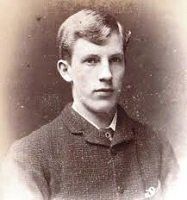
"Scotland never had a better forward than Eadie Fraser, known to everybody as the "Graceful Eadie". His movements were perfect. His popularity was extraordinary. On the field and off it he was a thorough gentleman, and never descended to those tricks which tend to bring the game into disrepute."
